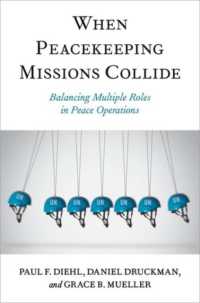- ホーム
- > 洋書
- > 英文書
- > Religion / Ethics
Full Description
This book explores the possibility of a hermeneutics of the Qur'an. It starts from the presupposition that the Qur'an can be studied as a philosophical book. Thus the analysis is theoretical more than historical. Many philosophers commented the Qur'an and many supported their theories by resorting to the Qur'an. Thinkers like Fakhr al-Din al-Razi connected traditional theology and philosophy in their Qur'anic commentary. Others like Nasr Abu Zayd used philosophy to deconstruct the Qur'an paving the way for a modern humanistic hermeneutics. This book tries to go a step further: it aims to offer a path within the Qur'an that - through philosophy - leads to a fresh understanding of fundamental tenets of Islamic thought, most importantly tawhid - God's oneness - and to a fresh reading of the Qur'anic text. This book applies the phenomenological and ontological hermeneutics of Edmund Husserl and Martin Heidegger to the study of the Qur'an going far beyond Annemarie Schimmel's phenomenological approach that is neither philosophical nor properly phenomenological (in Husserl's sense).
Contents
IntroductionPART ONE: THE PROBLEMS OF MODERN HERMENEUTICS OF THE QUR'AN1. What is Hermeneutics?2. The Qur'an as Event3. Tafsir and Ta'wil.4. Symbolism5. Being and Language6. Literary Hermeneutics7. Structure and Historicity8. Scientific Hermeneutics9. The Translation of the Qur'an as Hermeneutical Exercise10. Hermeneutics and PraxisConclusionPART TWO: THE QUR'AN AND PHENOMENOLOGY1. Introduction2. A Phenomenological Path in the Qur'anConclusion: From Hermeneutics to Praxis








